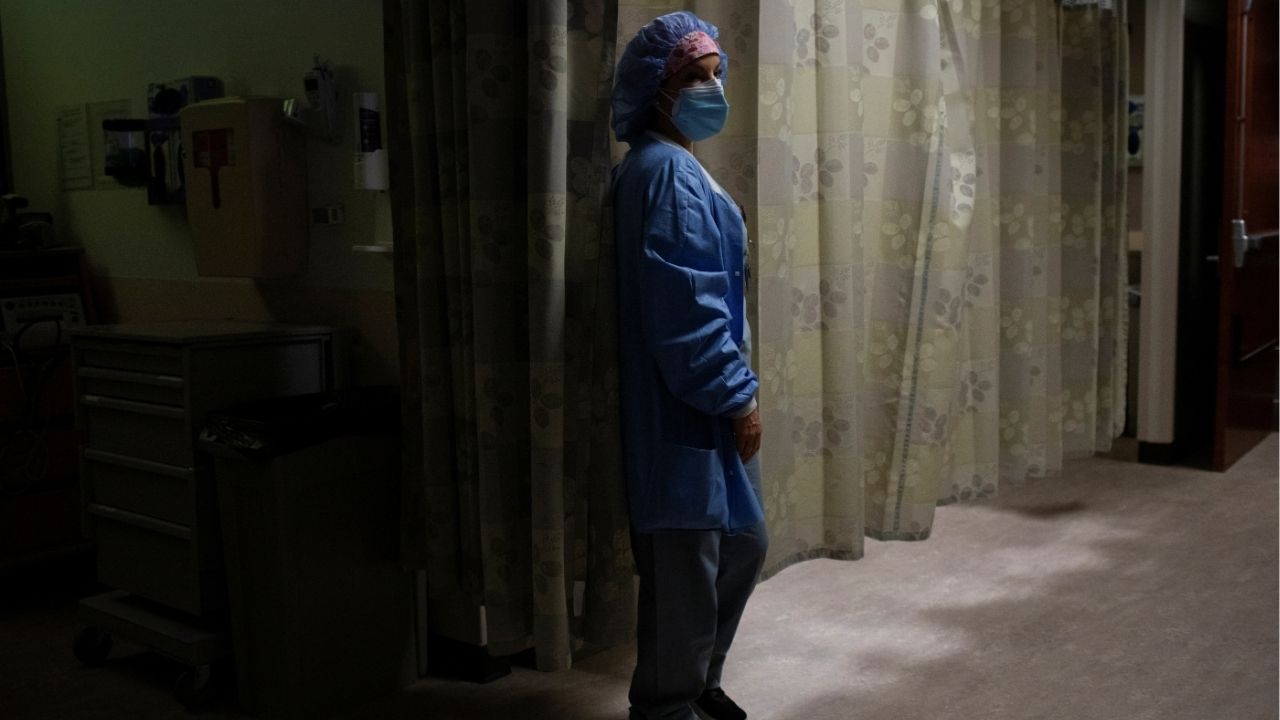A nurse checks on a patient in the Triage area in a hospital in Royal Oak, Michigan, U.S., February 1, 2022. (Reuters File)
Share
|
Getting your Trinity Audio player ready...
|
More than half of U.S. healthcare workers are actively looking to leave their current jobs, according to a new survey, underscoring mounting pressure on an already strained system.
The Harris Poll, commissioned by education services company Strategic Education, surveyed 1,504 frontline healthcare employees and 304 employers between June 26 and July 21 this year and found widespread burnout, dissatisfaction and a high attrition risk.
The findings are illuminating as hospitals grapple with pervasive labor shortages and mounting costs since the pandemic.
The study found 55% of workers intended to search for, interview for, or switch jobs in 2026, while 84% said they felt underappreciated at their current employer.
Only one in five believed their employer was invested in their long-term career growth.
The U.S. forecasts a shortage of nearly 700,000 physicians, registered nurses and licensed practical nurses by 2037, according to the Health Resources and Services Administration.
“Given the unprecedented need for care driven by the aging Baby Boomer population, these findings offer critical insights into how to better retain, support and prepare the people at the heart of our nation’s healthcare system,” said Jennifer Musil, global president of research at The Harris Poll.
Experts said while burnout and staffing shortages were not new, the scale of the current crisis was unprecedented.
“Healthcare is really at a critical juncture,” said Adele Webb, a nurse with more than 40 years of experience, who reviewed the findings.
“In my experience, it is worse than it’s ever been. We are losing more staff than we have ever lost. Jobs are harder, patients are older and more chronically ill. We do not have enough staff.”
Retention may depend on educational and career advancement as well as tuition support. Over 60% of the workers surveyed said they would be more likely to stay if tuition assistance were offered.
“A really surprising finding (was) the role that opportunities for continuing education and career advancement play in keeping our patient-facing healthcare workers at the bedside,” Webb said.
Younger workers, particularly Gen Z and Millennials, were the most likely to seek new jobs and the most likely to cite education benefits as a reason to stay.
—
(Reporting by Mrinalika Roy in Bengaluru; Editing by Pooja Desai)



















